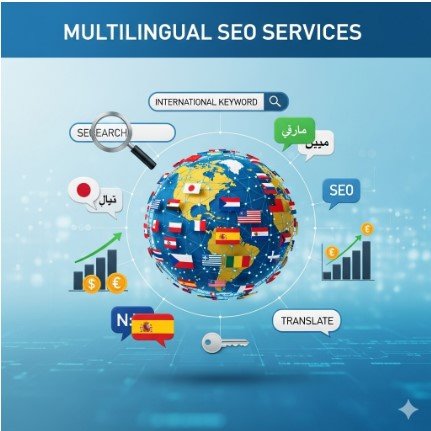In today’s hyper-connected digital era, businesses are constantly exploring innovative channels to reach and engage their customers more effectively. One of the most promising tools for enhancing customer communication is the WhatsApp Business API. As one of the world’s most widely used messaging platforms, WhatsApp offers businesses a unique opportunity to connect with their audiences in a personal, scalable, and secure manner.
What is the WhatsApp Business API?
Launched in 2018, the WhatsApp Business API is a powerful communication solution designed specifically for medium to large businesses. Unlike the standard WhatsApp Business app meant for small enterprises, the API enables businesses to integrate WhatsApp messaging directly into their customer service platforms, CRMs, or communication systems. This integration allows for automation, seamless multi-agent support, and the ability to manage high message volumes — features critical for growing organizations.
Key Features and Capabilities
The WhatsApp Business API provides a range of features that make it ideal for enterprise-level communication. Some of the notable capabilities include:
-
Two-Way Messaging: Businesses can engage in both outbound and inbound messaging, enabling real-time interactions with customers.
-
Message Templates: Companies can create pre-approved message templates for sending important notifications such as appointment reminders, payment confirmations, shipping updates, and more.
-
Rich Media Support: The API supports not just text, but also images, videos, PDFs, and location sharing, allowing businesses to provide richer customer experiences.
-
End-to-End Encryption: All communications are secured with end-to-end encryption, ensuring privacy and trust for both parties.
-
Automation and Chatbots: Businesses can integrate chatbots to handle routine queries, streamline workflows, and offer 24/7 support.
-
Multiple Agent Access: The API enables teams to manage conversations collaboratively, making it suitable for customer service departments and contact centers.
Benefits for Businesses
Using the WhatsApp Business API offers a variety of strategic benefits that can significantly enhance customer engagement and operational efficiency:
-
Wider Reach and Higher Engagement:
With over 2 billion users globally, WhatsApp offers unparalleled reach. Messages sent via WhatsApp often have higher open and response rates compared to traditional channels like email or SMS. -
Customer Convenience:
Customers prefer communicating through platforms they’re already familiar with. WhatsApp offers a convenient and user-friendly interface, making interactions more natural and less intrusive. -
Enhanced Customer Support:
Businesses can provide faster responses and more personalized support. By integrating automation and human agents, companies can resolve issues quickly and improve customer satisfaction. -
Operational Efficiency:
Automated flows, message templates, and integrations with internal systems help reduce manual workload, lower response times, and increase productivity. -
Secure and Trusted Communication:
WhatsApp’s reputation for security, coupled with its verified business profiles, increases customer trust and reduces concerns around spam or phishing attempts.
Use Cases Across Industries
The WhatsApp Business API can be tailored to a wide range of use cases across different sectors:
-
E-commerce: Send order confirmations, delivery tracking updates, and offer customer service assistance.
-
Banking and Finance: Notify customers about transactions, fraud alerts, or account activities.
-
Healthcare: Remind patients of appointments, share prescriptions, or answer FAQs.
-
Travel and Hospitality: Send booking confirmations, boarding passes, and personalized travel alerts.
-
Education: Share class updates, fee reminders, or learning materials with students and parents.
Getting Started with the WhatsApp Business API
Implementing the WhatsApp Business API involves several steps, including verifying your business with WhatsApp, setting up a business profile, and integrating the API with your communication systems. Once set up, businesses can begin configuring message templates, developing automation flows, and training agents or chatbots to manage conversations effectively.
Unlike the WhatsApp Business app, the API doesn’t come with a front-end interface. Instead, businesses must build or connect it to a platform that can handle messaging workflows, dashboards, and agent interfaces. While this requires a bit of technical setup, the long-term benefits in terms of scale and automation are significant.
Compliance and Best Practices
WhatsApp places a strong emphasis on quality customer interactions. To maintain a positive user experience, businesses must adhere to guidelines such as:
-
Only initiating conversations with customers using approved message templates.
-
Ensuring customers have opted in before receiving messages.
-
Responding to customer messages within a 24-hour window to maintain session messaging rights.
It’s also important to prioritize value in every interaction. Avoid overly promotional messages and focus on offering helpful, timely, and relevant content.
The Future of Messaging in Business
The WhatsApp Business API is not just a messaging tool—it’s a strategic asset that can transform the way companies interact with their customers. As consumer expectations for real-time, personalized communication continue to grow, businesses that invest in platforms like WhatsApp will be better positioned to build lasting relationships, drive loyalty, and stay competitive.
With ongoing updates and expanding capabilities, the WhatsApp Business API is poised to become a cornerstone of modern customer engagement strategies. Whether it’s improving support, boosting sales, or streamlining notifications, WhatsApp enables businesses to meet their customers where they are—right in their chat.



